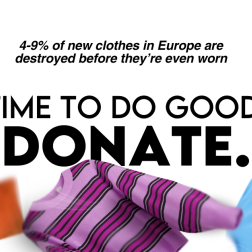- 2 mins read time
- Published: 30th January 2020
Sustainability through circular economy could put Ireland ahead of the curve
The corporate world has a huge impact on sustainability. Every decision can affect the most vulnerable people and fragile ecosystems, threatening livelihoods and exacerbating poverty. The fashion industry, for example, has completely changed our attitude towards clothes. The lack of regulation around fast fashion means that we are now buying cheap, easily disposable, low-quality clothes, many of which can’t be recycled.

The wages and working conditions of mostly female textile workers in countries like Bangladesh often fall well below basic human rights standards. Throwaway fashion is unsustainable and is stretching the planet’s resources way beyond its limits.
Every year, Irish people dump 225,000 tonnes of clothing – a huge waste of water and energy considering that it would take 13 years to drink the amount of water needed to make one t-shirt and one pair of jeans. The circular economy works by increasing the lifespan of a product through design, choice of material, manufacturing processes, product use, reuse and recycling.
Circularity is good for the environment and can help tackle the climate crisis. It also creates the chance for clothing designers and manufacturers to be more innovative. The following three principles could move us beyond the current take-make-waste model:
- Design waste and pollution out of the lifecycle of a product
- Keep products and material in use
- Revive natural systems
Oxfam works with a wide range of companies committed to sustainability – but a lot more needs to be done to develop the potential of the circular economy in Ireland.
We are calling on the next government to:
- Create an action plan for the textiles industry.
- Reduce VAT for services that prolong a product’s life. Make recycled materials more financially attractive than raw materials and provide dedicated research and funding to making clothes from recycled textiles.
- Create policies that encourage innovation in the circular economy.
- Insist on transparency from manufacturers so that the consumers know where their clothes are made and under what conditions.
- Make manufacturers responsible for the proper disposal or treatment of discarded clothes, many of which end up in landfill.




